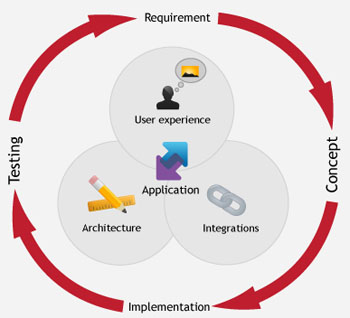You should map out your business necessities for ERP well before paying for new software.
You need to collect your requirements, figure your needs, and find out what characteristics you do not need. Indeed, those extra nice characteristics could potentially add thousands of dollars to your expenses!.
thousands of dollars to your expenses!.
Determine, firstly, what areas are most important to your POS operating system. The most common regions involved in POS software include finance and accounting, human resources, manufacturing, supply chain management, project management, customer relationship management, data services and access control.
POS Investment Schemes.
Think carefully whether you want to do an evaluation yourself or if you want to employ an advisor. At first sight, you may think you can do an ERP audit on your own. However, many business owners are often engaged and cannot pay a proper amount of time to considering all aspects of POS requirements-not to mention problems that originate in the near and remote future. Advisors have knowledge and experience pertaining to Point-of-Sales software. If you can't afford a advisor, try speech workers and determining the consensus of using your current software.
One common ERP development that is rapidly becoming the standard is online updating. Whereas in past years most systems required occasional updates, thanks to wireless Internet connectivity, online updating (for security and new features) is now the standard. This is especially important when you have local tax matters and other legal requirements. Getting "live" updates to the system can save you lots of problem in legal fees and trouble.
Customizing an ERP Plan.
After reviewing the basic demands of your business through professional consulting or employee consensus, it's time to organize your ERP plan. Map out the details and your priorities in the analysis stage. Be limited and document all of your aims, you bet certain key features can help you negotiate those targets. At the end of the evaluation, create a book documenting all of the system changes, evaluations and new policies. This is an ERP plan to go along with your new Point-of-Sales software. From that point on, you can really speak to a POS specialist and request customized features that will help you run your daily business.
Do not ever be satisfied with a standard system, which may be too complicated or too restricted operational. Get the help you need by buying retail software that follows your ERP plan. This is the most effective way to deal ERP development. The inventory software that you choose will help you organize and optimize your business. It will save you money because of new schedule efficiency and speed up the check out procedure process. It's time to create a plan of ERP and POS management so you will be ready for 2013!.